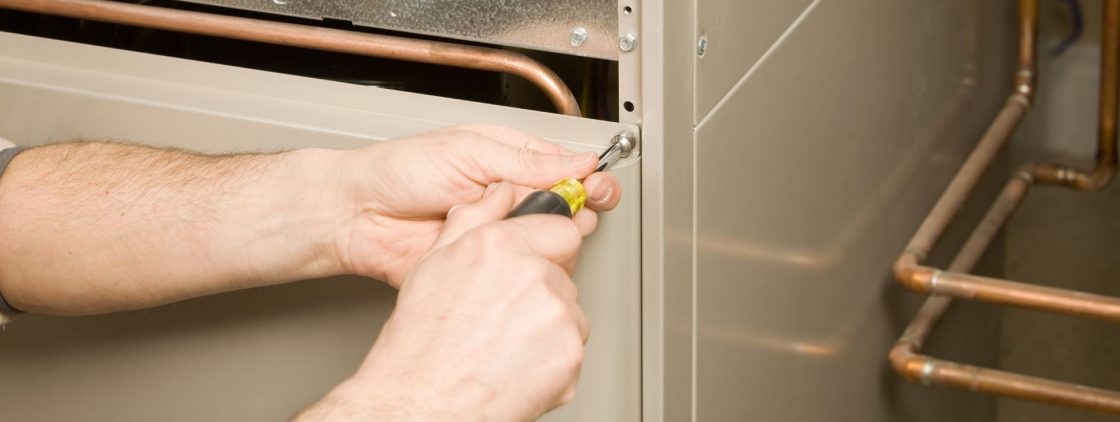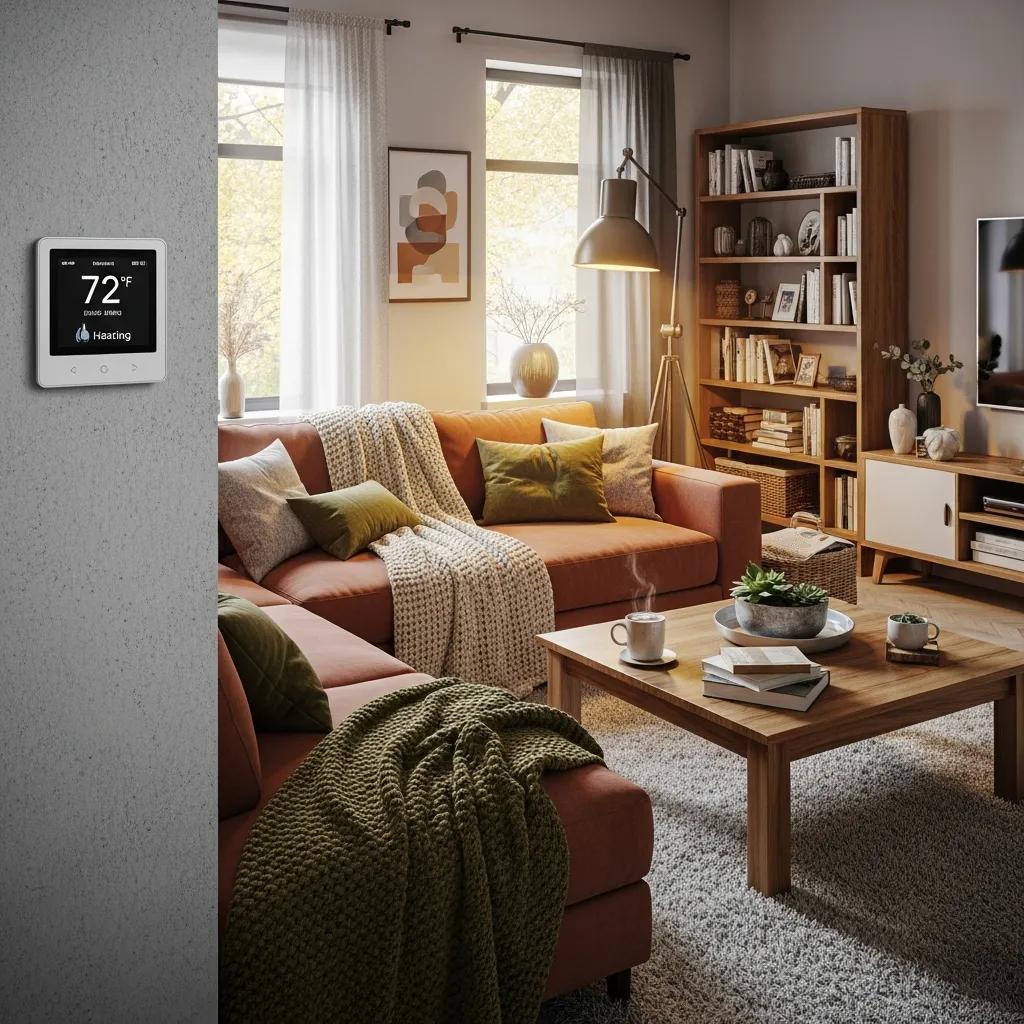Homeowners in Stafford know how quickly the weather changes as the season turns from summer to fall. As the air outside begins to cool, your heating system becomes one of the most important pieces of equipment in your home. But if it’s showing signs of trouble and you’re unsure what to do, you’re not alone. Knowing when something isn’t right and acting quickly can help prevent bigger issues later.
If your system is producing strange odors, making unexpected noises, or blowing less warm air than it used to, these are signs that your heating setup may require immediate attention. Ignoring these early warning signs can lead to system failure, costly repairs, or even unsafe conditions in your home. With cooler days approaching, now is a good time to learn what to watch for before temperatures dip even further.
Unusual Noises And Smells Signal a Bigger Problem
One of the first things many homeowners notice when something is off with their heating system is the sound. While it’s normal to hear a system start up or cycle off, loud or surprising noises can be a sign something is not working right. Here are examples of sounds that deserve a closer look:
– Banging: This may mean there’s a loose or broken part in the system.
– Screeching: Could point to a worn-out blower motor or belt.
– Repeated Clicking: Might suggest ignition trouble or electrical faults.
Smells can raise red flags too. A burning odor could mean dust has built up inside heating parts, but if it doesn’t go away quickly or smells more like singed wires or plastic, this may be more serious. Gas odors are always a reason to turn the unit off and call for help right away.
If you notice any combination of strange sounds or odd smells coming from your heating unit, don’t wait for them to get worse. These signs rarely stop on their own. In one Stafford home, a family ignored days of faint clicking and a burning smell, thinking it was just dust after a long summer. That delay led to a blown igniter and a heating outage during a cold spell. Small issues often get worse the longer they go unchecked.
Uneven Heating or No Heat at All
If some rooms feel toasty while others stay cold, your system isn’t distributing heat properly. Inconsistent heating like this might point to clogged filters, blocked vents, or problems with ductwork. But it can also signal more serious problems like a malfunctioning burner or blower.
No heat at all is an even bigger concern. If you bump up the thermostat and nothing changes, or if the system won’t kick on at all, something could be wrong with the ignition, electrical circuit, or thermostat wiring. When there’s no airflow coming through the vents, a safety sensor might have shut the system down due to a larger issue.
These are not the kind of problems where resetting the thermostat or flipping a switch will solve it. Heating systems have several built-in safety features meant to prevent damage or danger. If your system refuses to run or produces weak, uneven heat, it’s likely those safeguards are detecting a deeper issue. Calling our technicians early can help catch these problems before a breakdown hits during a cold morning.
Frequent Cycling Causes Extra Wear
If your heater kicks on and off more often than it used to, that’s another red flag. This is called short cycling, and it usually means the system is struggling to maintain your home’s temperature. Some possible triggers include:
– A thermostat that senses heat too early
– An oversized heating system for the space
– Clogged filters limiting airflow
– Dirty flame sensors causing inconsistent ignition
Not only is this frustrating, but it also puts more stress on the components of the system. Over time, frequent cycling can damage the blower, wear out filters faster, and cause the main motor to overheat.
In Stafford, where the weather can shift quickly during the fall, short cycling can leave your home uncomfortable when you least expect it. It’s better to have this checked when you first spot it instead of waiting for it to cause complete system failure. A properly running heater should warm your house evenly and at a steady pace without frequent stops and restarts. When it can’t do that, something is off.
Higher Energy Bills Can Point to Hidden Issues
If you’ve noticed your utility bills increasing even though your usage hasn’t changed, your heating system might be the reason. When a unit isn’t working efficiently, it uses more power to do the same amount of work, driving up your costs month after month. It’s easy to overlook this issue at first, especially in early fall while the system isn’t running constantly. But even mild weather can expose inefficiencies that get worse as temperatures drop.
Some common causes of rising energy bills tied to heating problems include:
– Clogged or old air filters restricting airflow
– Leaking ductwork wasting warm air
– Worn-out blower motors or heating elements
– Thermostats that aren’t calibrated correctly
– Systems short cycling or failing to shut off properly
These problems don’t always show up at once, and many develop slowly over time. But once your system starts working harder than necessary, it puts stress on the equipment and shortens its lifespan. Energy bills climb fast without any warning. Catching these issues early can protect your budget and keep your home comfortable.
Say you’re a homeowner in Stafford who turned the heat on for the first time since spring. A few weeks in, you notice the house doesn’t feel any warmer, but the heating bills are steadily climbing. Instead of another month of guessing, having one of our technicians check the system could reveal a clogged filter or a malfunctioning blower. Addressing that now, rather than in midwinter, saves money and prevents long-term damage.
Maintaining Comfort And Safety In Stafford
Heating systems handle a heavy load during the colder months. When they start to slip, it often shows in subtle ways first — hot and cold spots across rooms, noisy startups, or energy bills that increase faster than the weather can explain. These issues don’t fix themselves. Waiting only increases the chance of a full breakdown when you need heat the most.
Regular maintenance not only helps prevent sudden failures but also gives you peace of mind when the nights get longer and colder. By having your unit inspected before the season peaks, you catch things like loose wires, dirty sensors, or airflow problems that would otherwise get worse. That means fewer emergencies and a more dependable system when it matters most.
Taking heating issues seriously now helps avoid larger costs and keeps your Stafford home warm through fall and into winter. A well-maintained system does more than heat your house. It protects your comfort, your safety, and the life of your equipment. Stay ahead by responding to the signs before they turn into serious problems.
If your heating system is showing signs of trouble, Weather Cool Inc. can help address the issues before they worsen. Consider scheduling a professional inspection with our available heating service in Stafford to resolve complications like uneven heating, frequent cycling, or rising energy bills. Quick action now can spare you costly repairs later. For a quick estimate or to book a service visit, please contact us today.




